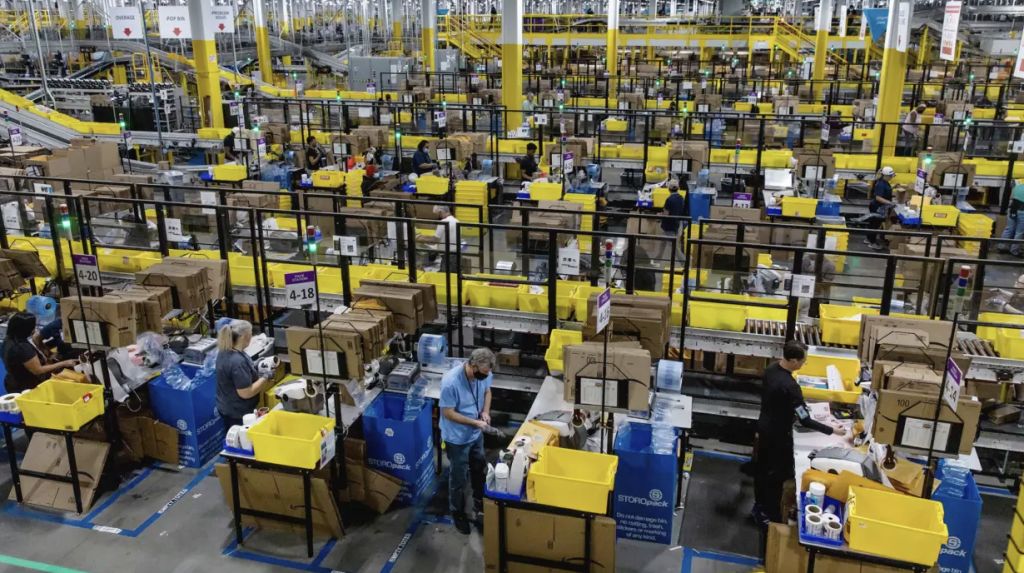
Green tenants to drive warehouse ‘churn' as net zero targets loom
A push by major industrial occupiers to achieve net-zero carbon emission targets is expected to fuel significant leasing “churn” over the coming years, as companies seek premises that will help them meet their environmental goals.
Nine companies, including Bunnings, Kmart, Symbion, Super Retail Group and Linfox, with combined leases of close to 1.3 million square metres of warehouse space, have goals to be carbon-neutral by 2030, according to a new report by JLL.
This includes 1.18 million sq m of logistics space where leases are due to expire before 2030.
“If you look at these lease expiries, for those occurring in 2024, those companies have probably already made their [warehouse] decisions. But for lease expiries in 2028, probably not,” Annabel McFarlane, JLL Australian head of strategic research, told The Australian Financial Review.
“If they are not in a building that fits in with their net zero targets, they will have to do something about it,” Ms McFarlane said. “So there will be churn.”
Alongside those nine occupiers with 2030 net-zero targets, a further eight – including Amazon, Metcash, Iron Mountain, DB Schenker and Australian Pharmaceutical Industries – aim to achieve that goal by 2040.
These 17 companies are part of a total of 53 of the 100 largest industrial occupiers that have stated net-zero targets, according to JLL.
An extremely tight leasing market – the national vacancy rate is below 1 per cent for prime warehouses, and below 0.5 per cent in Sydney – makes it less of an imperative for landlords to offer facilities with high sustainability ratings and amenities. But once the market returns to a more balanced state, a high proportion of warehouse relocations could be driven by occupiers’ net-zero ambitions and the unsuitability of their current premises to assist in achieving those goals.
Big players to benefit
This trend is likely to entrench the market power of the biggest developers and landlords, while those with lesser quality or older premises will have to invest in upgrades to attract and retain tenants, or reposition them for other uses.
Major groups like Goodman, Charter Hall, Dexus, GPT, ESR and Frasers, which are backed by environmentally conscious institutional capital, all have put sustainability front and centre of their development and operations.
“As markets rebalance, the relatively small group of largely institutional industrial property owners that are taking a proactive approach to sustainability are likely to gain from potential green premiums in asset values and rents,” Ms McFarlane said.
JLL’s Accelerating Logistics and Industrial Sector Sustainability Report found that sustainability related financial disclosure requirements, tightening regulatory pressures, and intensifying consumer and stakeholder expectations were all “conspiring to turbocharge the sector’s efforts in reducing the carbon footprint of both developers and occupiers”.
Among occupiers, JLL found the highest priorities to be improving energy efficiency (82 per cent), enhancing green/renewable energy generation such as rooftop solar panels (64 per cent) and reducing overall carbon emissions generated over the whole life of their building (39 per cent).
“As developers respond to strong occupancy drivers and more supply comes on stream, new assets with built-in, sought-after sustainability features – or repositioned existing assets – are likely to lease faster and with higher rents to tenants with environmental targets,” Ms McFarlane said.
“From a capital value perspective, terminal yields will be sharper, debt costs lower and pricing differentials will start to emerge reflecting lower re-leasing and capex risk attached to sustainable assets.
“More importantly, they are mitigating ESG [environmental, social, and corporate governance] risk that will become amplified in coming decades as Australia’s property industry transitions to net zero carbon,” said Ms McFarlane.











